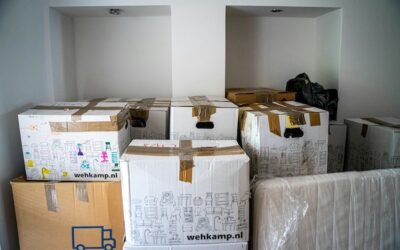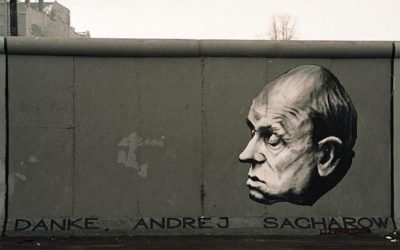Why specialists who have left the country are combining formal institutionalized activities with informal ones
Sofia Smyslova
Photo: Emigrant scientists actively participate in informal teaching activities. Photo by freestocks on Unsplash
Academic staff have left Russia throughout its entire modern history. The latest big wave is the departure of scientists since February 24, 2022.
According to Novaya Gazeta, at least 2,500 people have changed their affiliation to a foreign one. Proekt cites data stating that the main reasons for leaving are “dismissals, the collapse of faculties, and censorship in teaching and research.”
Informal Activities
Russian scientists go abroad in search of true academic freedom. Institutionally, they are assimilated into various roles (postdoc, visiting scholar, scholarships for scholars-at-risk, or other, most often precarious, temporary positions). But in addition to this, scientists are actively involved in informal teaching opportunities.
Every year, new educational and/or outreach projects in the humanities and social sciences emerge. The total number of teachers across all alternative online schools and universities can reach up to 200 people per year. Despite the fact that many projects include scientists who remain in Russia, up to 70-80% of their teaching staff are emigrants.
Why do departing professionals seek to combine formal institutionalized activities with informal ones, and how might this affect the concept of academic freedom? This article is based on preliminary materials of a doctoral dissertation.
Personal vs. Institutional Academic Freedom
The Academic Freedom Index (AFI) suggests distinguishing between personal academic freedom (reflected in such indicators as the “freedom to teach” and the “freedom to disseminate knowledge,” among others) and institutional academic freedom (the autonomy of the university).
Former dean of the Moscow School of Social and Economic Sciences Sergei Eduardovich Zuev proposes a similar distinction in his reflective essay. He understands institutional freedom as autonomy due to the freedom of the university and personal freedom as space for the personal (free) development of a teacher and/or researcher.
The divide between these types of freedoms is vividly highlighted in the personal narratives of scholars at risk, who have been forced to leave their home universities and settle in Western academic institutions. In this “free academia,” scholars from Syria, Iran, Turkey, and other countries subject to long-term conflicts or authoritarian restrictions find not only a new home, but also new challenges related to the implementation of their academic freedom.
Temporary work, self-censorship for fear of losing their position (on which their legal status in a new country might depend), alienation, and cultural isolation are the constant companions of emigrant academics.
Split from the Cultural Environment
Upon leaving, university instructors most likely integrate into one or another institution that can claim a relatively higher level of academic freedom than Russian universities. In this way, they establish their new formal status.
However, their personal development is still limited by the fact of their immigration—the new environment can never replace the old one. Unlike international (academic) mobility, which implies the possibility of existing in several different environments at once (for instance, maintaining an affiliation with their “home” university while holding a position as visiting scholar at a foreign institution), forced emigration represents a split from the familiar cultural environment and its public forum. One natural reaction is to preserve everything they have accumulated through collective emigration, taking their established academic practice with them “suitcase by suitcase.”
“Naturally, we considered how to preserve some of it [through joint efforts]. Primarily because everyone wanted to continue working, of course. Well, the point was to preserve, not to let…I don’t even know how to describe it metaphorically…not to let this evil devour what people had been building for so many years.”
Quote from an interview, summer 2023
Alternative Universities
To a certain extent, migration due to repression or censorship directly opposes the freedom of movement that has been a constituent of academic freedom since time immemorial. In such cases, one must bring the environment for personal development with oneself. Examples of these kinds of relocation (usually from an offline campus in one’s homeland to an online project) are virtual universities.
In the Turkish emigrant community, there is Off University, while Syrian emigrants have the Free Syrian University. For Russian emigrants, the creation of alternative, non-brick-and-mortar universities has been another potential way of compensating for the lost cultural environment. At least six new such projects have cropped up since 2022, and most of the instructors are scientists in forced emigration. This does not include the largest such project, the Free University, which was established before the war.
“We started with mini-courses that could be launched quickly. It was a project in and of itself, originally conceived in order to provide an opportunity for teachers who had been forced to leave the country due to the war to continue their work. Especially those who were previously associated with organizations that had been friendly to us, so that they do not lose touch with Russian students.”
Quote from an interview, summer 2023
Maintaining Connections
Based on a series of interviews with emigrant faculty who have found a “new home” in these informal projects, it appears that the desire to interact with the Russian environment, to talk to Russian or Russian-speaking students, and to teach students who remain in Russia is a component of personal development, and therefore a component of personal academic freedom.
Through the practice of interacting with the environment they have left behind, emigrants are able to bridge this gap in their identity. Without this, their subjective sense of the possibility of self-realization would remain limited.
“Then we decided that we needed to establish something new, to create an institution that would allow us to continue on. […] [We had] a desire to maintain a connection to the reality in Russia so that we could teach people who remained in the country on Zoom. […] I never wanted to leave—I had no such ambitions. I wanted to build an academic career in Russia. But once I was in exile, I started thinking about how to reconcile the two, and this project became a way to move in that direction.”
Quote from an interview, summer 2023
The need to maintain a connection with an abandoned homeland is an often-described phenomenon both in studies of forced emigration and in fiction. Forced emigration, according to J. Clifford*, forms the so-called “diasporic or exiled consciousness.” This consciousness is characterized by an orientation toward the future, when it will one day be possible to return to the place of real or mythical origin.
* J. Clifford. 1994. “Diasporas.” Cultural Anthropology: Journal of the Society for Cultural Anthropology
In his study of the “exiled intelligentsia,” David Kettler** formulates this consciousness as a “consuming question of return” that is always present in the background. However, the extra-spatial universities and schools created by Russian scholars seem to utilize this consciousness. Instead of planning (and dreaming) about the future, academics can pursue their aspirations for self-development here and now, through lectures, reading groups, discussions, and other forms of engagement.
** D. Kettler. 2011. “A Paradigm for the Study of Political Exile: The Case of Intellectuals.” Proceedings: Scholars in Exile and Dictatorships of the 20th Century.
Parallel Lives
Through informal educational projects, which are decentralized and virtual, “exiled” Russian academics institutionalize their “exiled consciousness.” In doing so, they lead two parallel lives:
- in their formal position at a foreign university
- in their informal position as an instructor at an online university for Russian-speaking teens, college students, or adults.
For its part, the host university has almost no way to provide this connection with the “place of real or mythical origin.” The sole exceptions are research grants for projects directly related to the study of Russia and scholarships for Russian students. However, these are extremely rare.
The number of alternative educational institutions is growing, a fact that confirms the demand not only from students (who most often remain in Russia), but also from teachers. They find in these activities an opportunity for academic self-realization.
Freedom as a Feeling
Academic freedom can be measured not only through an external lens and through observed freedoms of researchers, but also as the subjective feeling of the possibility of significant self-realization. And in the case of forced emigration, this remains inextricably linked with the environment that scholars have abandoned.
Among other things, this type of alternative, “liminal” university becomes a platform for combating “brain drain.” The aid offered by Western universities and foundations for emigrant scientists also has a downside, as Carola Richter*** argues: it attracts “valuable capital” and extracts benefit from the migration of intellectual resources.
*** C. Richter. 2022. “Scholars in Exile in Germany and Their Relations to Home and Host Communities.” In Academics in Exile: Networks, Knowledge Exchange and New Forms of Internationalization. Bielefeld: Transcript, 2022.
Emigrant academics cannot resist this on their own. However, by creating alternative spaces for the production and dissemination of knowledge, they seek to neutralize the damage that brain drain does to their native environment.
“[It would have been wrong to simply] throw everything away, everyone run off in different directions to find a postdoc program. What we’re trying to establish is not some mystical connection with Russia, but rather a way of taking what has already been created and replanting it in different places. I think it’s like a plant that you divide into parts: you take cuttings from the stem, but it continues to grow further, in new soil, preserving the old foliage. That, in my opinion, is a perfectly fine path.”
Quote from an interview, summer 2023
* * *
Academic freedom exists not only on a national scale (as the index of a specific country), but also in the subjective relations of different groups of scientists with the host country and its universities.
What in one organization may be a space of academic freedom for “ordinary” scientists, will for certain groups—those who have been forced to emigrate—be subjectively perceived differently, as a limitation of academic freedom. After all, for them this freedom is naturally distorted by emigration itself.
For an emigrant with a “disturbed identity,” academic freedom as an extension of intellectual self-identification also becomes disturbed. Their sense of self likely needs to be realized both in their current geographical location and in their connection with their abandoned environment (language, culture, and students).





0 Comments